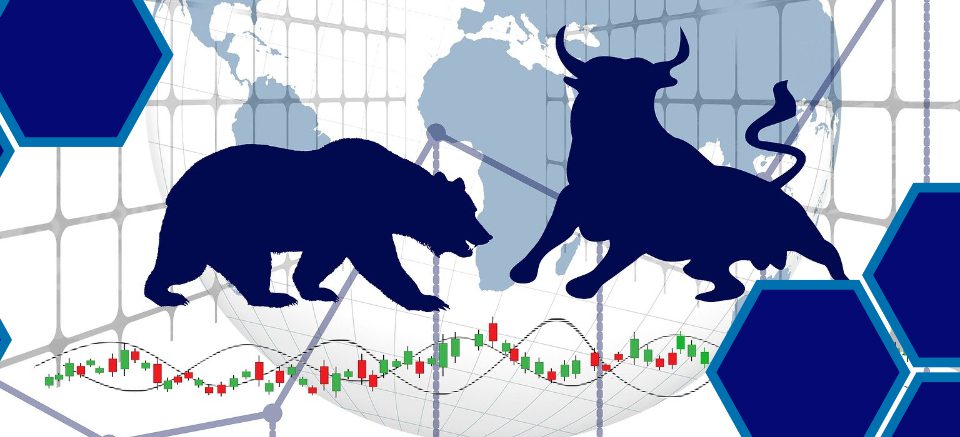- Contact us
- +599-9 461 4545
- info@dcsx.cw
The Securities Exchange is not a Bank; it’s a Marketplace.

An Investment Account; Should I Get One?
September 17, 2018
Making Savings Fun for Kids and Teenagers!
October 13, 2018The Securities Exchange is not a Bank; it’s a Marketplace.

Publication 11. 2018
“Investing should be more like watching paint dry or watching grass grow. If you want excitement, take $800 and go to Las Vegas.”
Paul Samuelson
A Financial Intermediary?! Perhaps you have heard of it before, but do you understand what it really means? You might have an idea but then maybe you need some clarity as to which financial intermediary does what? I will try and break it down for you.
Think of a financial intermediary as a financial middleman in a business transaction. We know that a middleman is someone who arranges a deal between two sets of people. So, in other words, the middleman – and therefore the financial intermediary – acts as a link between people in order to bring about an agreement or business dealing.
There are many types of “middleman” in the financial industry. For example, a commercial bank. The bank is the most commonly understood middleman in the financial industry. This is because the bank arranges the money from those who have, a lender – through their savings – and give it to people who do not have, borrowers – through loans and mortgages. In the end, the bank acts as one of the ultimate intermediaries in the financial market.
There is one other critical financial intermediary that plays a significant role in the financial industry: The Securities Exchange. The Dutch Caribbean Securities Exchange or DCSX acts as the middleman between companies – that need funding, whether it is a start-up company on the verge of expansion or a mature company that wishes to explore new opportunities – and the investors who have monies and want to invest in these start-ups or mature companies. The Securities Exchange acts as the ultimate marketplace to connect these businesses and investors. The DCSX therefore, with the assistance of registered listing advisors and brokers, ensures that a company that issues a bond or stock to raise capital is connected with investors who wish to buy the bonds or stocks. The Exchange, therefore, doesn’t give loans nor do they take deposits or offer savings account. The Exchange only acts as a marketplace, an electronic location for interested parties to exchange ownership of stocks and bonds for money.
While there are similarities, I want to emphasize the main differences between the two main financial intermediaries:
- The biggest difference is that a bank can provide financing to a person or a company. An individual can get a personal loan, for example, to buy a car or a house. That same person can also present documents for his company and is able to get a loan from the company to buy equipment or to invest in a project. On the other hand, the DCSX can only facilitate the financing of companies and does not allow for financing for individual purposes.
- The most commonly misunderstood feature of the DCSX is that the Exchange is able to give loans or money to a company. This is not correct. The DCSX only creates the marketplace for a company to make an offer to the public and the public has an opportunity to accept the offer and make an investment or reject the offer and look at other investment options.
- To get a loan from a bank, you present the financials of your company along with other company information and the credit officer at the bank reviews and checks whether they will grant you a loan. In contrast with DCSX, a company, with the help of its listing advisor, explains the business performance and the reason for raising the money through another process. The information is put together in a document called the Offering Memorandum, which is then shared with the public. The public then assesses and decides whether they will invest and lend money to the company. Therefore, where the bank is the one deciding whether to give a loan or not and actually making the payment of the loan to the company, the DCSX provides no opinion on the company’s offer and the investors are the ones who make the decision as to whether to invest their money or not.
- For a business in need of financing on the DCSX, less collateral normally is needed to get funding, while with the bank, a company is usually asked to provide substantial collateral. Locally the banks ask for collateral specifically in real estate. On the Exchange, potential investors are more likely to assess, the growth potential and earning ability of the company, rather than the amount of collateral that the company can provide.
- The cost of getting funding can be cheaper when done through the Exchange compared to getting a loan from a bank. Locally, the interest rate is lower for a bond than the interest rate that is due on a commercial bank loan.
For larger companies looking financing of very large projects, it may prove financially prudent, to seek funding not only through bank loans but also through the issue of bonds/stocks to augment the capital raised and minimize the cost of financing.
This editorial is presented to you by the DCSX with the collaboration of Vertex Investments.
Author of this publication: Stephanie Shaw CFA, MBA.




